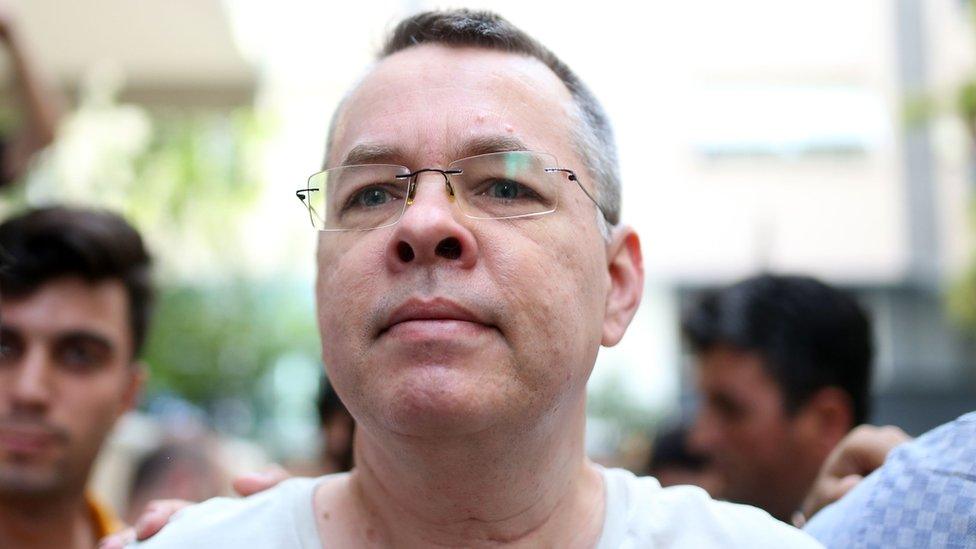US threatens more action against Turkey unless pastor freed
- Published
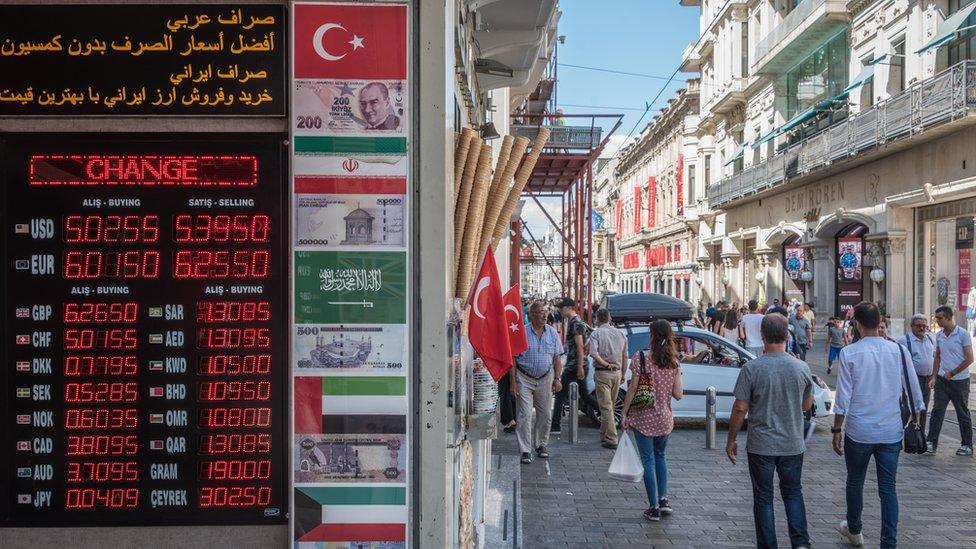
The US has threatened to impose more economic sanctions on Turkey if it does not free a detained American pastor.
Andrew Brunson has been held in Turkey for nearly two years over alleged links to outlawed political groups.
The dispute over his release has seen the two Nato allies impose tariffs on one another's goods.
This has worsened a crisis for Turkey's currency, the lira, which has lost about a third of its value against the dollar since January.
The crisis has prompted widespread selling in other emerging markets, sparking fears of a global crisis.
What is the new threat from the US?
The lira has staged a small recovery but that is threatened by a fresh tweet from US President Donald Trump.
He said early on Friday that Turkey had "taken advantage of the United States for many years" and that he was "cutting back on Turkey".
Allow X content?
This article contains content provided by X. We ask for your permission before anything is loaded, as they may be using cookies and other technologies. You may want to read X’s cookie policy, external and privacy policy, external before accepting. To view this content choose ‘accept and continue’.

On Thursday, US Treasury Secretary Steven Mnuchin said: "We have more that we are planning to do if they don't release him [Mr Brunson] quickly."
Last week, the US doubled its tariffs on metal imports from Turkey.
Turkey vowed it would not succumb to threats.
A court refused to release Mr Brunson, and the the government in Ankara increased tariffs on imports from the US of cars, alcoholic drinks and leaf tobacco - and the lira recovered slightly.
Why this tension between Nato allies?
Turkish President Recep Tayyip Erdogan has accused the US of trying to "bring Turkey to its knees".
Ankara accuses Mr Brunson - who operates a tiny evangelical church in Izmir - of having links to the outlawed Kurdistan Workers Party and the Gulenist movement, which Turkey blames for a failed coup two years ago.
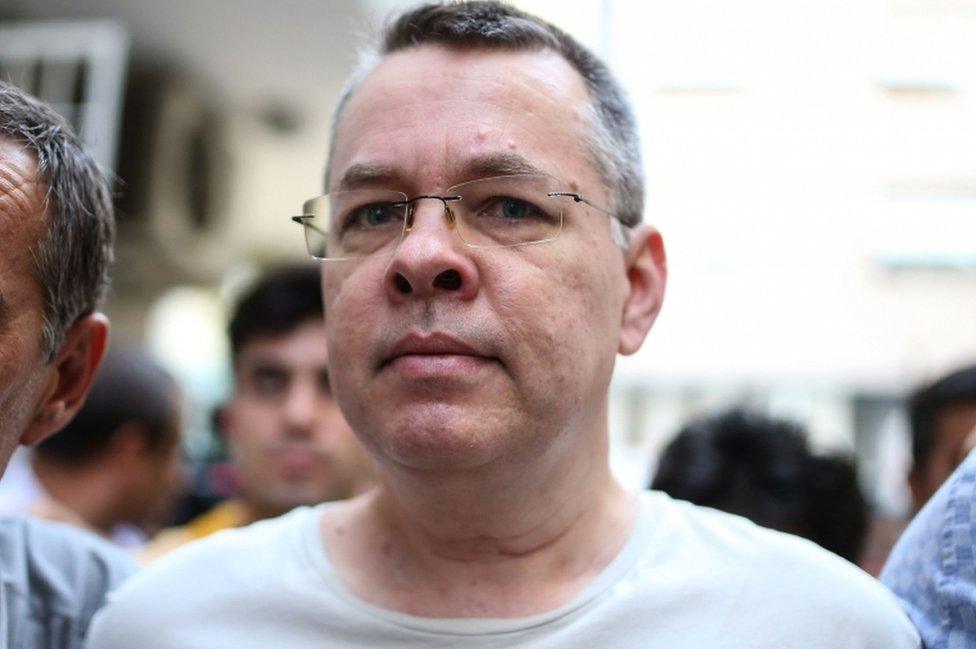
US President Donald Trump has called pastor Andrew Brunson "an innocent man of faith"
Mr Brunson has denied charges of espionage, but faces up to 35 years in jail if found guilty.
The US insists the pastor, a long-time Turkish resident, is "a victim of unfair and unjust detention".
Mr Trump described him as "our wonderful Christian Pastor, who I must now ask to represent our Country as a great patriot hostage".
The influential Protestant evangelical church in the US is a major support base for Mr Trump.
Mr Erdogan is angry that the US has not taken more action against the Gulenist movement and what he said was a failure "to unequivocally condemn" the 2016 coup attempt. The US has refused to extradite Fethullah Gulen, who lives in Pennsylvania.
US support for Kurdish rebel groups fighting Islamic State fighters in northern Syria is another major difficulty, given Turkey's battle against a Kurdish insurgency in its own country.
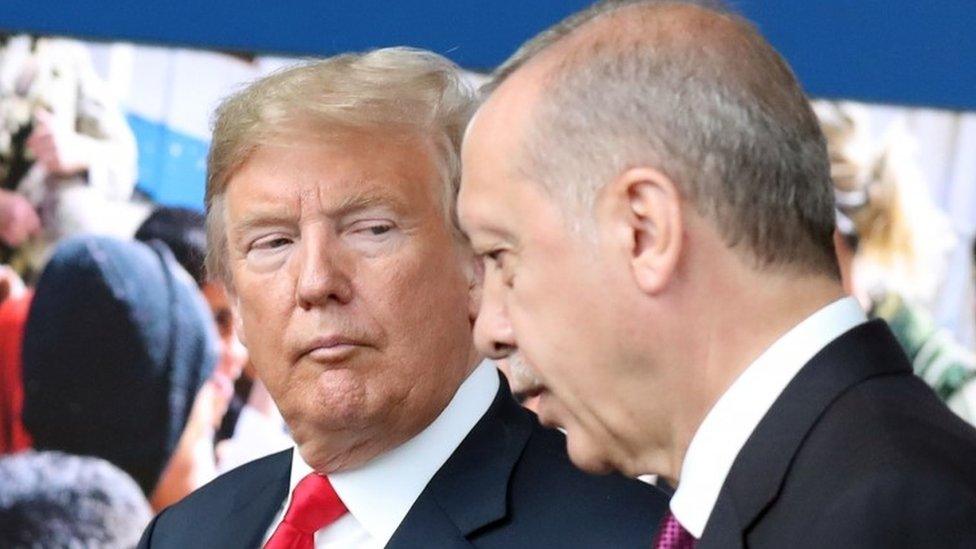
The pastor is only one of a number of issues dividing Mr Trump and Mr Erdogan
Mr Erdogan wrote in the New York Times , externalearlier that unless the US changed course, Turkey would look for new friends and allies.
Russia's Foreign Minister Sergei Lavrov, visited Ankara on Tuesday, branding the US sanctions an illegitimate policy.
It's an awkward triangle, given that Turkey is a Nato member, Russia is Nato's number one threat and the organisation is obliged to defend any member that is attacked.
Could the lira crisis spread?
President Erdogan has urged Turks to shore up the currency by not trading in dollars and euros.
On Monday, the central bank said it would provide all the liquidity Turkish banks needed, as it seeks to keep money flowing in the financial system.
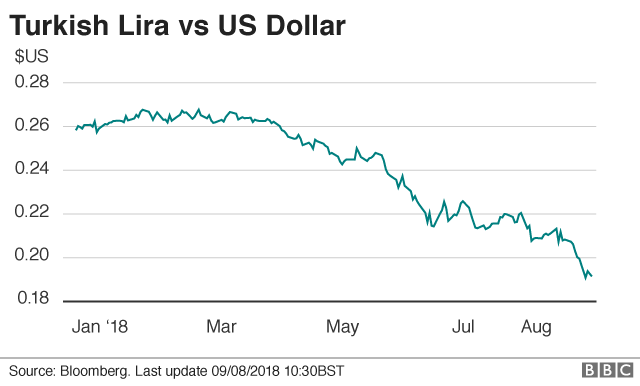
There are signs that the weakness in Turkish currency markets is already spreading.
South Africa's rand, Russia's rouble, the Indian rupee and Indonesia's rupiah have all taken a hit from the crisis in Turkey.
- Published10 August 2018
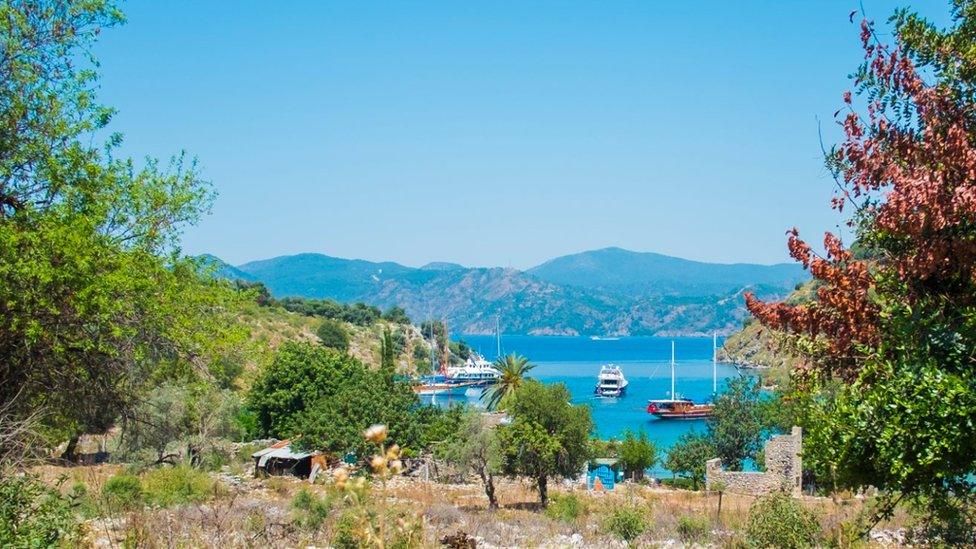
- Published9 August 2018
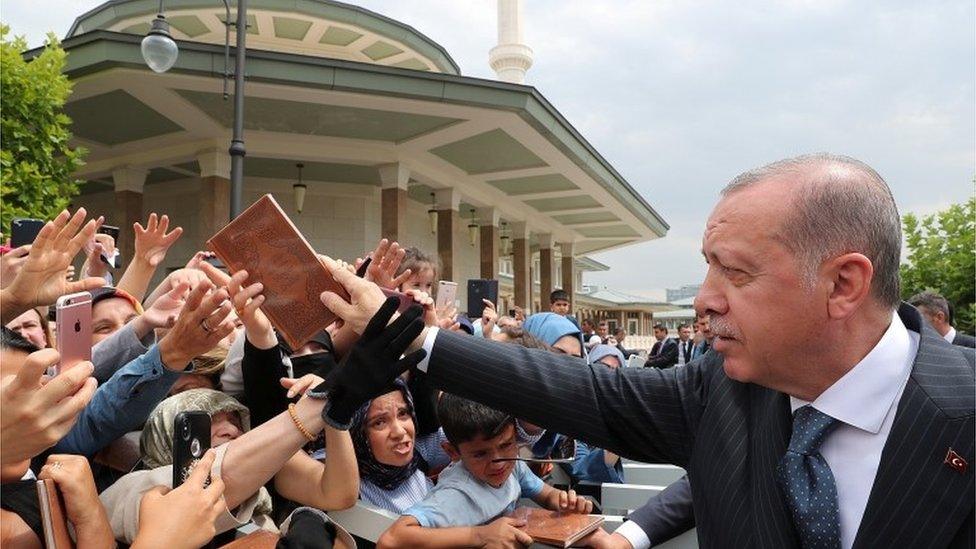
- Published15 August 2018
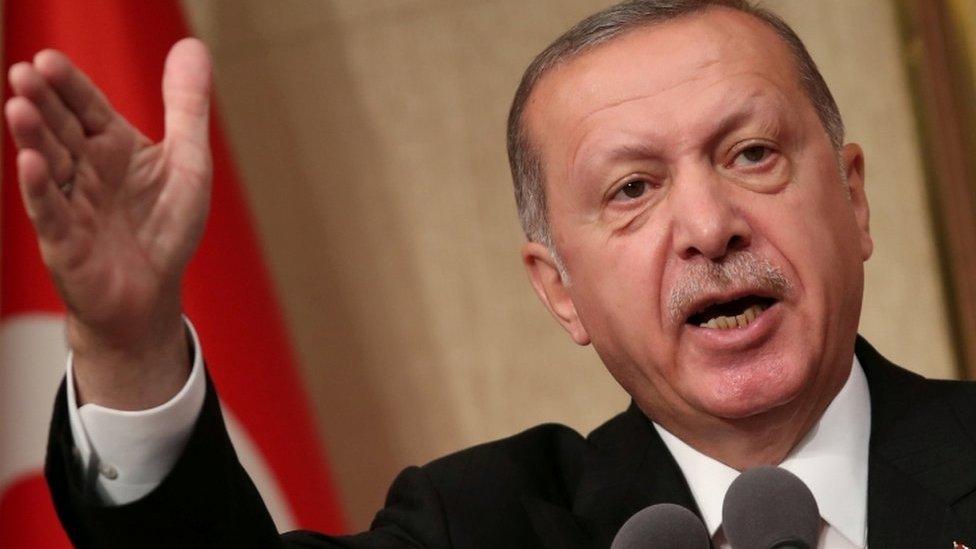
- Published14 August 2018

- Published2 August 2018
